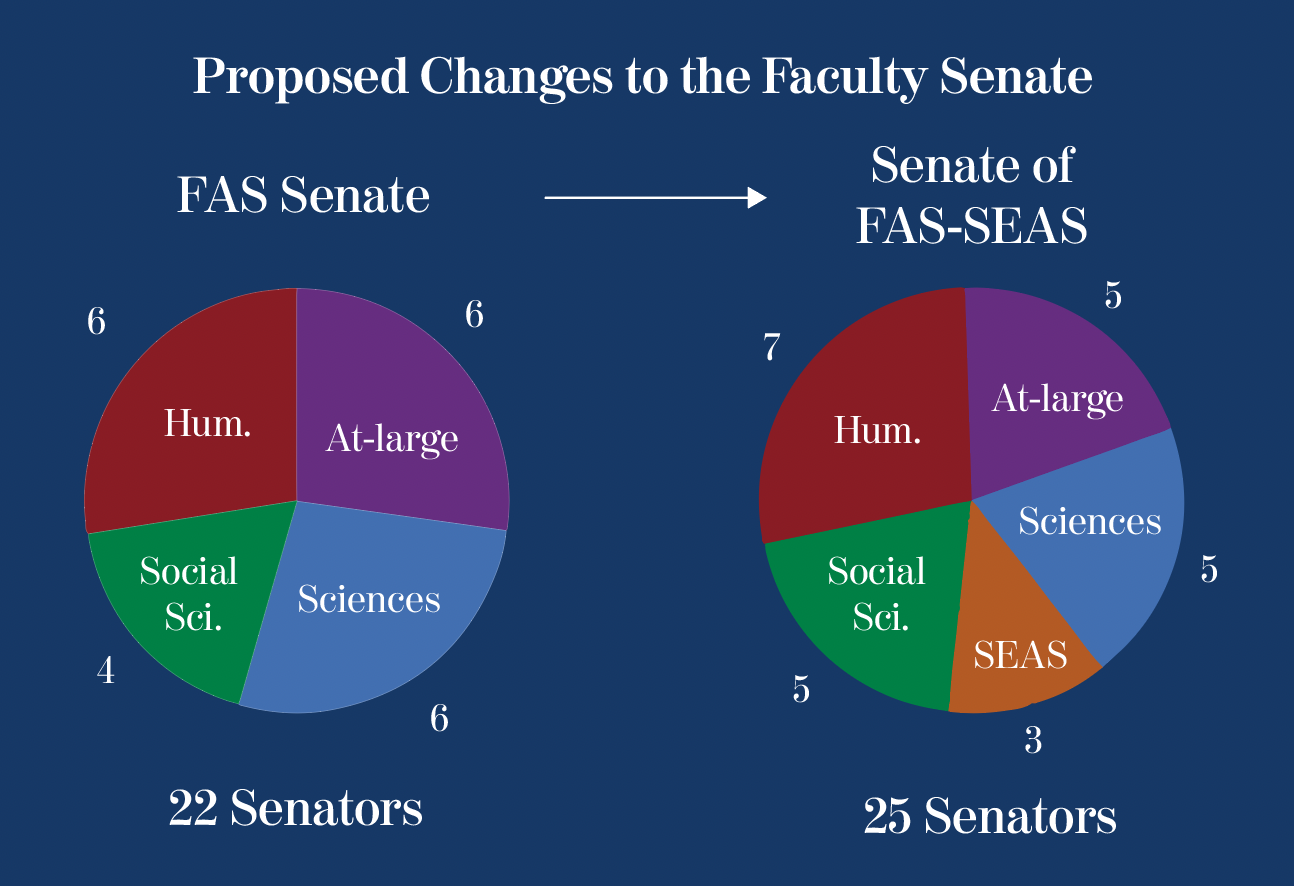Faculty senate renamed to encompass distinct engineering faculty
The body, formerly known as the FAS Senate, will have a new name to reflect its representation of a newly-distinct engineering faculty. The Senate will also seek to add three seats in order to re-balance representation between its four divisions.

Isaac Yu
Yale’s faculty senate will soon have a new name — and new seats for engineering faculty.
Per an announcement in late February, engineering faculty will soon become a distinct entity — the School of Engineering and Applied Sciences — separate from the Faculty of Arts and Sciences, with their own dean, budget and governing rules. They are currently represented under the umbrella of the Faculty of Arts and Sciences Senate, a body elected by faculty vote that frequently weighs in on both University-wide and national issues.
With SEAS formally exiting the FAS, it was not immediately clear whether engineering faculty would continue in the Senate. Last Thursday, however, senators approved bylaw changes that would allow SEAS faculty, who continue to teach Yale College students alongside their FAS colleagues, to remain under the Senate’s representation. For now, the body is being described as the Senate of FAS and SEAS, though senators are currently soliciting suggestions for its final name.
“FAS and SEAS faculty face many similar issues, and it is in our (and Yale’s) best interest to work together,” wrote Paul Van Tassel, a senator and professor of chemical and environmental engineering as well as biomedical engineering.
In addition, the Senate will seek to increase the number of seats, from 22 to 25 senators, as well as redistribute seats across divisions. The humanities and social sciences will gain one seat each for a total of seven and five senators, respectively. SEAS faculty, which was previously included under the larger umbrella of science faculty, will be allocated three seats, while the FAS’ Biological and Physical Sciences division will now have five senators instead of six. The Senate will also subtract one at-large seat from the current six.
The proposed allocation, Senate Chair Valerie Horsley wrote, is based on figures provided by the FAS Dean Tamar Gendler’s office. Both the number and distribution changes will require approval by the full Yale College faculty.
Horsley also noted that changing the number of seats to 25 would prevent tie votes, though the vast majority of Senate decisions are reached via broad consensus.
“This number allows the Senate to maintain an adequate number of voices from each of the 3 FAS divisions and SEAS faculty,” Horsley wrote in a faculty-wide email on Friday.
According to Gendler’s office, 35 percent of the Yale College faculty body are humanities faculty, 26 percent are social sciences faculty, 25 percent are physical and biological sciences faculty and 13 percent are SEAS faculty — though SEAS expects to increase its faculty by more than a third over the next five to six years. Gendler indicated support for the continued inclusion of engineering faculty and praised the Senate for “[responding] quickly and constructively to the administrative changes.”
Alessandro Gomez, another engineering representative on the Senate, also voiced support for the change.
“Even though we are gaining some form of autonomy, we are still very much part of Yale College and the graduate school,” said Gomez, who has long advocated for an expansion of engineering faculty. “As a result, the goals and ambitions of the Senate are the same as the future school of engineering and applied sciences.”
The FAS Senate was first elected in 2015.







